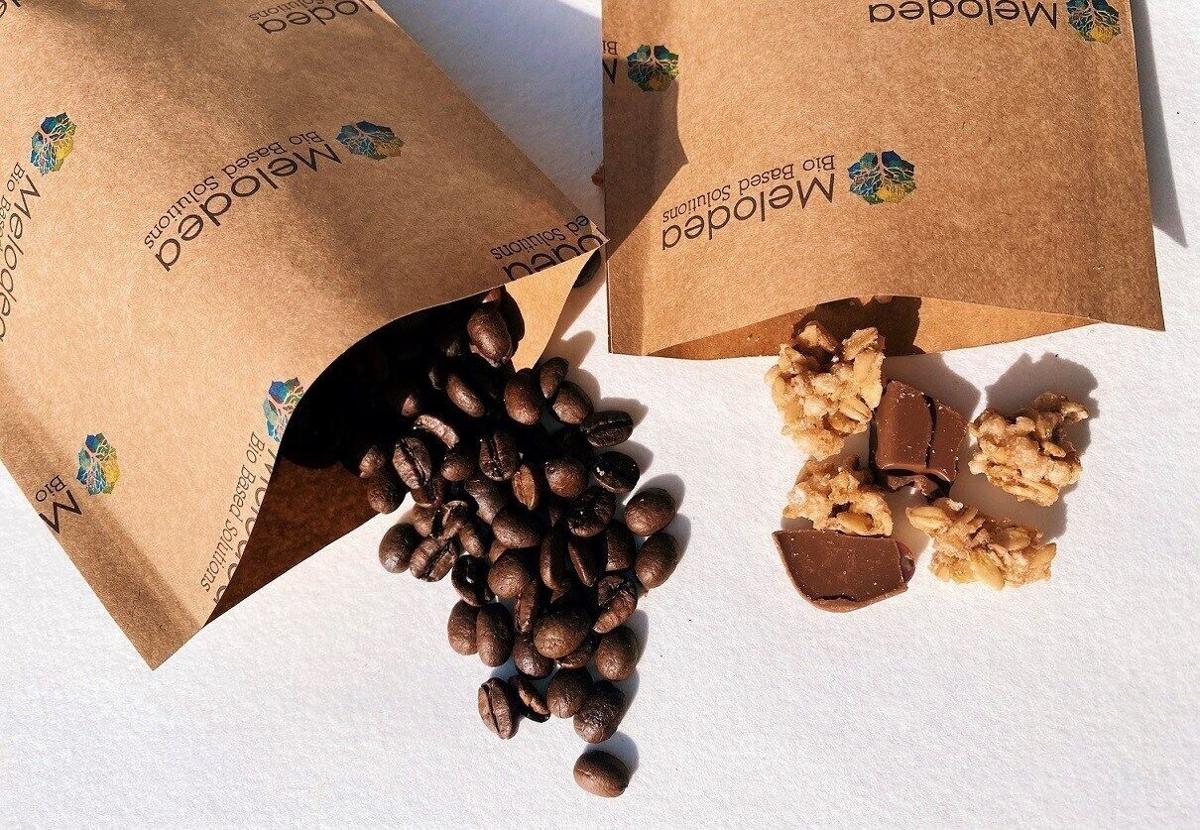
Unlike existing materials used for such purpose like plastics and aluminum, Melodea sources its barrier coating material for packaging from wood pulp, the same raw material used to make paper. The innovative green solution helps steer paper and packaging producers toward more socially responsible packaging routes and will enable them to meet sustainability goals more quickly. The coatings are sustainable and recyclable, and do not contribute to plastic waste pollution.
Plant cellulose replaces plastic
"Cellulose, the primary building block of the cell walls of all plants, is the most abundant biopolymer on the planet," explains Shaul Lapidot, PhD, CEO and co-founder of Melodea.
"It provides plants with extraordinary strength, and is a lightweight—yet strong—material We found that this bounteous and renewable material can be utilized to produce novel, eco-friendly packaging alternatives for the packaging industry."
The company applies proprietary technology to extract cellulose nanocrystals from wood pulp sourced from trees grown in industrial forests. The sustainable barrier coatings are uniquely designed to offer protection from oxygen, oil, grease, and water vapor transmission. The coatings helps maintain the quality and integrity of the packaged foods inside, while eliminating the need for aluminum and plastic. As a forestry by-product, it also is compostable, recyclable, and completely non-toxic for people and the environment. Once done with the package, one can simply throw it into the recycling bin.
Helping packagers comply
"Consumers are imposing more strident demands when it comes to the welfare of the planet, and this increasingly resonates in their purchasing behavior," adds Lapidot. "Concurrently, the supply chain is 'greening' up its act, especially in light of legislative measures curbing plastic use. The Melodea barrier coating helps the packaging industry make a smoother shift from petroleum-based plastics to plant-based materials, without compromising safety or performance."
The EU Single-Use Plastics Directive (SUPD) went into force in July, effectively placing a ban on the ten most polluting single-use plastic items littering EU beaches. Among these are plastic bags, packets, wrappers, and food containers. The directive also placed labeling requirements to inform customers on the packaging's disposal options and its content.
Packaging in harmony with nature
"It is no secret that the solution for a sustainable and circular packaging industry necessitates moving to bio-based materials," asserts Zvika Weiss, CFO of Melodea. "Our cellulose-based barrier coatings offer an economically affordable, naturally abundant, and sustainable alternative to oil-based products. More importantly, its raw material lives in harmony with nature—it comes from the forest, and it returns to the earth at the end of its lifecycle."
The company's liquid formulas can be applied as a coating to various substrates, including paper, paperboard, bio-plastic, and even plastic itself. It serves companies across the packaging value chain, from paper and packaging producers to consumer goods manufacturers and food companies. The high-barrier coatings can be tailored to a broad range of packaging products, such as pouches, lids, and food and beverage cartons. It is suitable for packaging both dry and liquid products. "Our coatings can easily be integrated into standard industrial coating lines, including slot dies, rod coaters, and gravures," Weiss adds. "The coatings already are in pilot use by a number of major companies."






